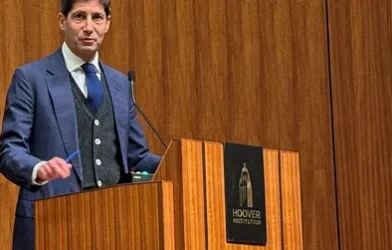Yom Kippur is one of the most important and sacred holidays in Judaism. Often referred to as the Day of Atonement, it is a time for reflection, prayer, and asking for forgiveness. For Jewish people around the world, Yom Kippur is not only a religious observance but also a deeply personal and spiritual experience.
Yom Kippur takes place each year on the 10th day of the Hebrew month of Tishrei, which usually falls in September or October on the Gregorian calendar. It comes at the end of the Ten Days of Repentance, a period that begins with Rosh Hashanah, the Jewish New Year. This time is meant for self-examination, repentance, and setting intentions for the coming year.
The central focus of Yom Kippur is atonement. It is a day when individuals seek forgiveness from God for the sins they have committed over the past year. But it is also a time to make peace with others. According to Jewish tradition, asking God for forgiveness is only part of the process. People are also encouraged to reach out to friends, family, and even strangers to apologize for any wrongs they may have done. True atonement involves both spiritual reflection and human connection.
One of the key practices of Yom Kippur is fasting. From sunset on the evening of Yom Kippur until nightfall the next day, Jewish people who are healthy and of age do not eat or drink. This 25-hour fast is a symbol of humility, self-control, and dedication to spiritual matters. It is meant to help individuals focus on prayer and inner reflection rather than physical needs.
In addition to fasting, Yom Kippur includes several religious services held at synagogues. These services include special prayers, readings from the Torah, and a repeated confession of sins. One of the most well-known prayers is the Kol Nidre, which is recited on the evening when Yom Kippur begins. It is a moving and emotional prayer that sets the tone for the solemn day ahead.
Throughout the day, there are five separate prayer services, more than on any other Jewish holiday. The final service, called Ne’ilah, marks the closing of the gates of heaven. It is the last chance for prayer and repentance before the day ends. As the sun sets and the fast comes to a close, a single long blast of the shofar, a ram’s horn, is blown. This sound signals the end of Yom Kippur and brings a sense of emotional release and spiritual renewal.
Yom Kippur is also marked by simplicity. Traditional dress is often white to symbolize purity and a fresh start. Some people avoid wearing leather shoes as a sign of humility. The focus is not on material things but on the soul and one’s relationship with God and others.
Although it is a solemn day, Yom Kippur is not viewed as a day of sadness. Instead, it is considered a gift. It is an opportunity to wipe the slate clean, to grow spiritually, and to become a better person. Many people find the experience powerful and moving, especially when shared with a community.
For those who are not able to fast or attend services, there are still ways to honor the day. Reflection, quiet time, and acts of kindness can all be meaningful expressions of the holiday’s purpose. Yom Kippur invites everyone to pause, look inward, and consider how they can improve their lives and relationships.
In modern times, Yom Kippur continues to hold great significance for Jews around the world. Even those who may not observe all Jewish traditions often take part in Yom Kippur in some way. It is a time to connect with heritage, values, and community.
In conclusion, Yom Kippur is more than just a day on the calendar. It is a time for personal reflection, spiritual growth, and meaningful change. Its traditions of fasting, prayer, and repentance offer a chance to let go of past mistakes and enter the new year with a clear heart and a renewed sense of purpose. Whether observed in a synagogue or in private, Yom Kippur remains a powerful reminder of the importance of forgiveness, compassion, and self-awareness.













Comments are closed